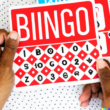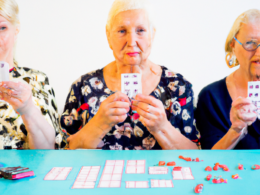When speaking about Japanese Bingo, it can be difficult to convey the full meaning without first understanding the origin of the game. In its simplest form, Bingo is a board game where players take turns drawing numbers from a bowl or drum.
The player who fills in all of the circles on their card or board (usually 20 in a basic game) is the winner.
However, the history of Bingo goes back much further than simply a simple game. According to legend, Bingo was first played in China over 2,000 years ago.
At that time, it was used as a way to keep people entertained during long military campaigns. Today, Bingo is still popular in China and other parts of Asia, and is also gaining popularity in countries such as Japan.
In Japan, Bingo has been around for centuries and has always been associated with social gatherings and celebrations. In fact, it is said that Bingo was originally played as a way to relieve boredom during Shinto ceremonies or Buddhist services.
Today, it is still commonly played at weddings, births, and other special occasions.
In spite of its popularity in Japan, many people are still unfamiliar with the full meaning of Bingo. For most people, Bingo simply refers to a simple game that can be enjoyed for fun. However, there are also some deeper cultural implications that go along with Bingo in Japan.
For example, it is often used as a means of networking and building relationships. Additionally, playing Bingo can be an effective way to relax and de-stress after a long day.
Ultimately, what matters most when speaking about Japanese Bingo is its cultural significance. Not only does it hold traditions and meanings that are unique to Japan alone, but it also serves as an important tool for social bonding and relaxation.







